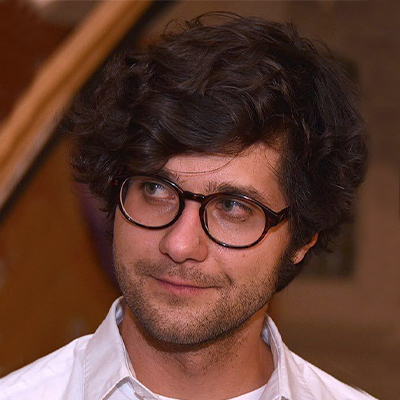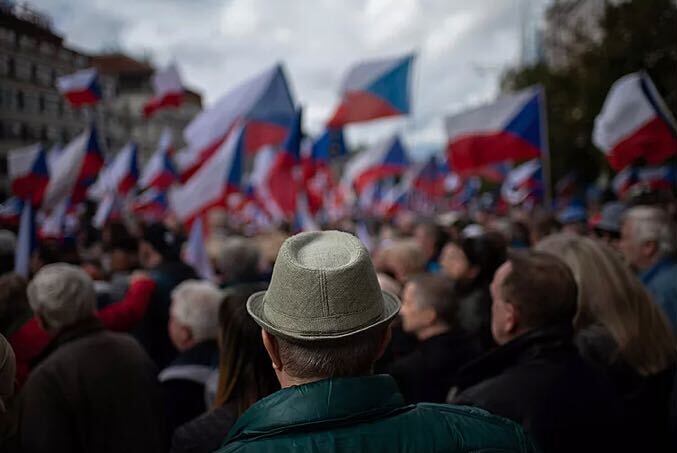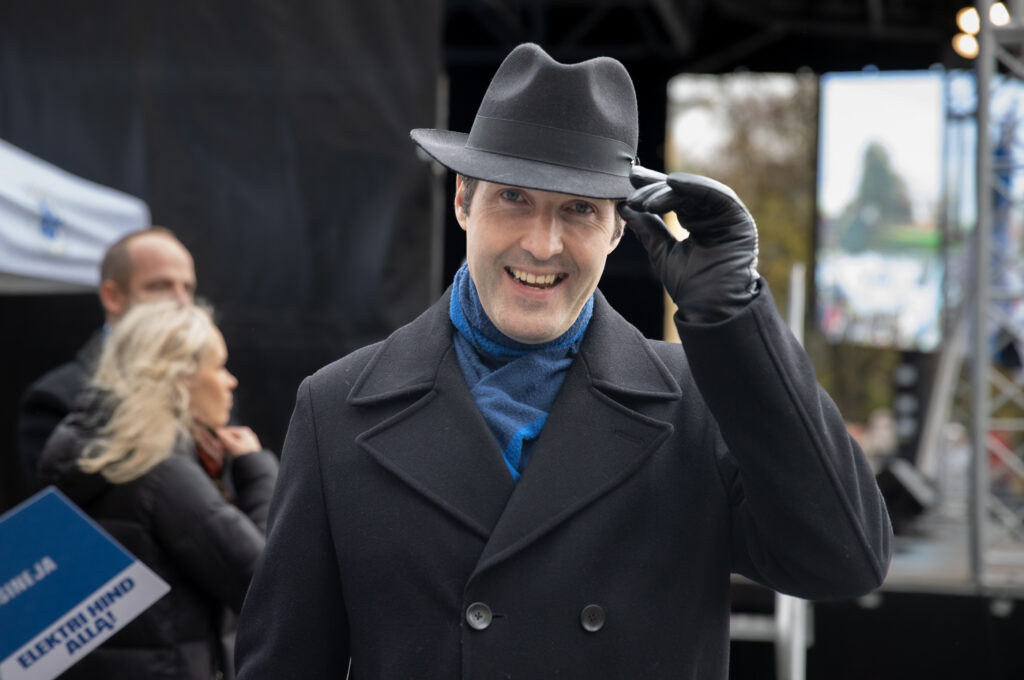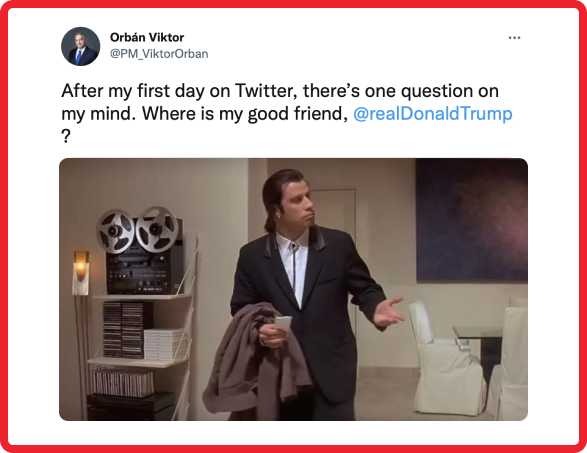“The nation has risen!” exclaimed organisers of the demonstration “Czechia First” in Prague at the end of September. “We are taking the country back!” Not really. The crowd was half the 70,000 who three weeks earlier “filled up Venceslaus square” – a symbolic feat.
Yet, the thousands who came together marked a solid attendance. The protest, which focused on high energy prices and the cost of living but quickly morphed into a general political demonstration, is maintaining momentum.
“Let the Praguers see how expensive life is,” says a man from Eastern Bohemia. “I’m from Prague, whaddya talking about?” asks a woman nearby. “It sucks everywhere,” they agree. The culprits: the government, Brussels, Berlin and Washington, helping Ukrainians instead of their own people.
Organisers demand the demise of the government, a gas deal with Russia, no support for Ukraine, no electricity exports, ‘czexit’ and the ‘complete turnover’ of Czech politics.
Ladislav Vrábel and Jiří Havel, the men behind the protests, established themselves on the far-right scene during the pandemic by opposing restrictions (and spreading disinformation, by some). This is the first time they’ve received national attention, though. The huge success of the first protest was a booster. The far right, having failed to capitalise on the pandemic, now feel it may have a shot.
Households are still to get (supposedly horrendous) utility bills. Companies have their bills fixed till winter. Government offers help and price caps, the question is whether it is enough. Other cost-of-living protests attracted few attendees. Either all dissatisfied people are pro-Russian enthusiasts, or “Czechia First” syphoned off all the discontent. The latter is likely.
But the movement is marred by mutual distrust and bickering, typical for the Czech far right. The next gathering is planned for the national holiday of October 28. Either they can capitalise further on the wrath of the people, or it’s another ‘missed opportunity’ for the Czech far-right.






